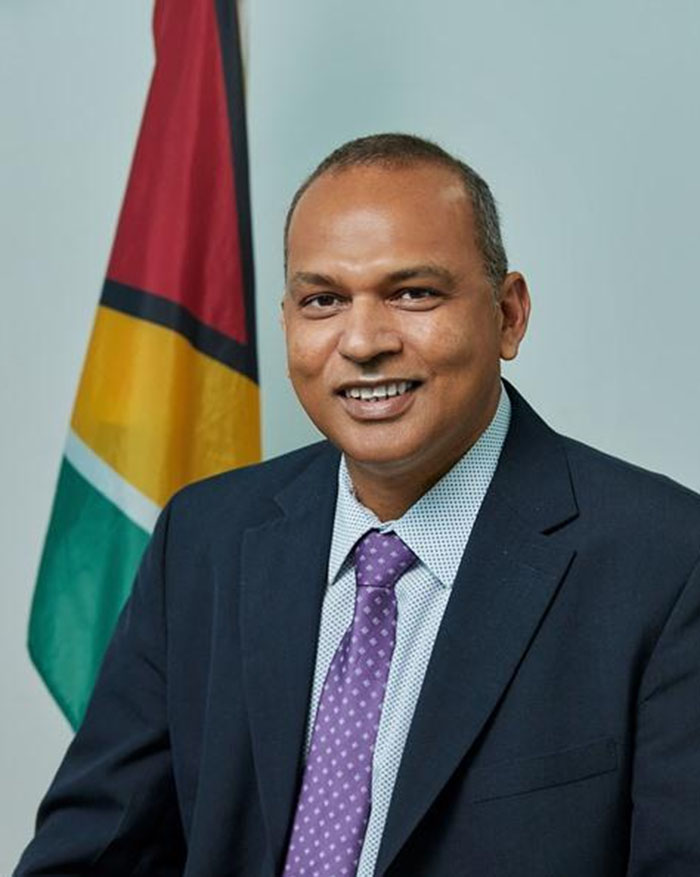Government earlier this month tabled in Parliament a bill which would see the establishment of a Human Organ and Tissue Transplant Agency here to facilitate the removal, donation and transfer of human organs to those in need due to health complications.
Presenting the bill for its first reading was Minister of Health Dr. Frank Anthony.
Once passed, the Human Organ and Tissue Transplant Bill 2021 would provide for the donation and removal of human organs, tissues, cells, bio fluids for transplantation and blood for transfusion, for their use for regenerative medicine including cell therapy, gene therapy and stem cell therapy, and other therapeutic purposes, for medical education and for scientific research purposes including stem cell research, cell explant research and cell line research, and for connected matters.
Currently, there is no legislation to allow the transplanting of organs and tissues although there is the capability and equipment. For years now, medical practitioners, particularly those in the public health sector have been lobbying for the legislation which could save numerous lives.
The bill proposes that the Human Organ and Tissue Transplant Agency will serve as the national organisation for donation and transplantation.
According to the bill’s explanatory memorandum, the agency will be charged with facilitating, coordinating and managing the donation process for organs, tissues, cells and bio fluids for transplantation. It will also be responsible for implementing a donation process which will involve close collaboration with agencies designated to conduct organ and tissue transplants.
Among other things, the agency will be in charge of facilitating, coordinating and managing the procurement, storage, preservation, distribution and delivery of organs, tissues, cells and bio fluids; collect, analyse and publish information relating to the donation and use of organs, tissues, cells and bio fluids
The agency is to be headed by a team which will include a Chairperson appointed by the minister, the Chief Executive Officer (CEO), the Chief Medical Officer and the chairperson of the medical council.
Clause 3 of the bill seeks to establish a National Donor and Transplant Registry which will have to register consents, amendments and revocations of consents of adults in relation to the donation of their organs, tissues, cells or bio fluids after death.
“The agency shall establish a public education programme to increase awareness about organ, tissue, cell and bio fluid donation, the need to provide for an adequate rate or increase of such donations and the benefits of organ, tissue, cell and bio fluid transplantation,” the explanatory memorandum states.
The registry will facilitate both in-person and online registration for donors.
Clause 4 sets out to give the minister power to grant permission to health care providers in public and private hospitals, clinics, laboratories or any other facility to be designated to carry out the transplants.
With approval from the Minister, the designated agencies will be allowed to collaborate, coordinate, negotiate or join with counterpart organisations in the Caribbean Community (CARICOM) or other international organisations for the exchange of organs, tissues, cells, biofluids, information and the sharing of expertise.
According to the bill’s explanatory memorandum, adult donors would be required to be of “sound mind and in light of medical advice provided by a medial practitioner, agree with removal”.
Consents will be given by signature in the presence of a designated officer. “It is a duty of the designated officer to explain to a donor the implications of removal of an organ or a tissue, cell of biofluid from the body and to ensure that the donor understands the implications of the removal,” it said.
As it relates to minors, an independent assessment committee will be established. “The independent assessment committee shall have a minimum of three members, one of whom shall be a designated officer and one of whom shall be a psychologist or psychiatrist,” the explanatory memorandum further states.
The bill also makes provision for donations to be done after death once permission was granted by the donor while alive and the ban on trade in human organ, tissue, cell or blood or any bio fluid and advertisement relating to purchase.






